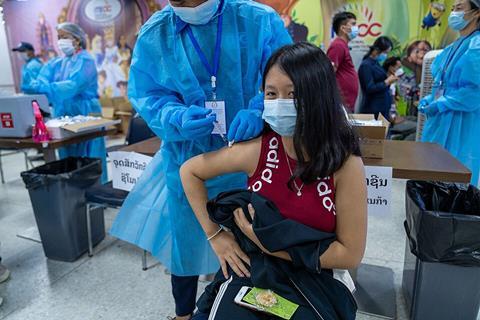New research from Murdoch University’s Australian National Phenome Centre confirms that multiple doses of COVID-19 vaccines do not cause significant metabolic changes.

Published in the Journal of Molecular Medicine (Springer Nature), the study monitored 167 metabolic markers in 33 participants over 480 days post-vaccination across 28 time points.
READ MORE: New study provides insight to why Covid vaccines hit some harder than others
READ MORE: BNT162b2 vaccine not only targets COVID-19 virus, but may also help control innate inflammation
Lead author Associate Professor Ruey Leng Loo said the findings provide reassurance for those concerned about potential long-term side effects of vaccination.
“This real-world study shows that COVID-19 vaccines are safe and don’t cause significant metabolic changes,” Associate Professor Loo said.
“Our findings help counter misinformation and support confidence in vaccination.”
Key health indicators
The study found no significant impact on key health indicators including inflammatory markers, cardiovascular risk marker, lipoproteins, amino acids, and molecules involved in energy pathways.
Metabolic markers, including 34 cytokines, 112 lipoproteins, and 21 low-molecular-weight metabolites, remained largely stable post-vaccination.
This study further compared vaccinated individuals to a control group with no previous COVID-19 exposure and individuals who had mild cases of infections.
The metabolic profiles of vaccinated people closely matched those of control individuals, further confirming that vaccination does not trigger major metabolic shifts.
Changes after vaccine dose
“A notable change, such as an increase in the inflammation-related marker Chemokine IP10, was observed after the third vaccine dose, however, levels remained within the normal range previously reported and returned to baseline levels before subsequent doses,” Associate Professor Loo said.
“While mild SARS-CoV-2 infections can cause more pronounced metabolic changes, the temporary fluctuations we observed after each vaccination were minor in comparison.
“These findings offer further reassurance to those hesitant about vaccination, demonstrating that multiple doses do not cause the same biological responses as the COVID-19 infections.
“While the results are promising, further research with larger and more diverse groups is needed to validate these findings.”
The full research Longitudinal study on immunologic, lipoproteomic, and inflammatory responses indicates the safety of sequential COVID-19 vaccination published in Journal of Molecular Medicine is available online.







No comments yet